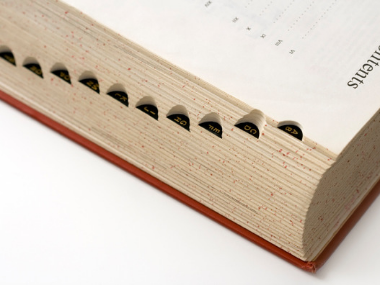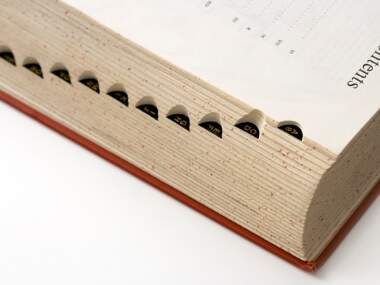One Word
One Word: Verse

I'm remembering the farmer now. He's taken off his sword and belt and left them on a rock, and now he's laboring behind his sixteenth-century wooden plough (it may as well be ancient Greek, it's changed so little). As his stalwart horse is harnessed to the plough itself, the farmer is also—only a little more metaphorically—harnessed to his work.
They're going from right to left. Eventually they'll complete this row, and turn to do a row from left to right—then right to left again, and so forth, in the pattern that, indeed, is still described from the ancient Greek: boustrophedon, "turning as the ox ploughs."
There are languages written and read that way, from left to right, then right to left, so down the page. English isn't one of them. It's interesting to think of the psychology, even the hand-eye physiology, of a culture that writes and reads its text in this ploughmanlike manner. Almost a science fiction writer's challenge: given a world of boustrophedon literature . . . what children's games and warfare and gods and weaver's designs and sexual shenanigans do we posit?
***
Of course boustrophedon isn't the only writerly term that we can wring from this scene I'm loosely lifting out of Pieter Bruegel the Elder's The Fall of Icarus. When our farmer reaches the end of a row, he verses—that is, he turns, for that's what "verse" means. That's what a line of poetry does: it re-verses, consciously, from right to left. Another science fiction speculation: posit the difference in culture between the Planet of Poems and the Planet of Prose. What happy trade exists between the two, and what embargoes?
***
"Lineation," I write on the board, and then "enjambment."
When I start to teach the "line break" to an undergraduate class, I give them a scraplet of my own creation, starting with the first line:
It is summer
at which I stop and ask what part of speech the word "summer" is. These days, some have no idea; but someone will finally say "noun." Then I continue:
It is summer
firewood we're burning now,
keeping us warm all winter.
Now? "It's an adjective" (these days, that takes many minutes). Right. You see? As the line breaks, so is our expectation of "summer" 's function broken. The line not only "turns," it kind of "turns around" and bites us. More than that, however, the line breaks . . . and our expectation breaks . . . just as we're given the implicit image of broken wood, and broken chemical bonds inside the burning wood . . . the language is mimetic of the action it's describing. And beyond even that . . . as we're given to see the wood's potential energy (stored up from June to December, let's say) made blazingly kinetic when the bonds break . . . so does "summer" 's being positioned at a breaking-point release a double energy (both adjective and noun) from it as well . . . we see it "verse," "turn" into two things simultaneously.
It isn't often as tough to write a poem as to plough a field. But Paradise Lost . . . that must have been a few fields. How much harvested milo-units (or wheat—or corn—or sorghum) go into Dante's midlife journey? We don't always sweat in our labor, we poets. And yet at the turn of the line, at least the idea, at least the ghost of an idea, of conscious and rigorous effort arises.
(In the attention traditional "light verse" often calls to the rhyme of its line breaks
Or Moses or Napoleon or Cleopatra or King Midas,
Or a man named Harris who is just getting over an
attack of tonsilidas
[from a poem by Ogden Nash]
it's the weightiest, heaviest-panting verse of all, and not the lightest.)
***
Bruegel's painting is from 1588. It was as recent as 1520 that Magellan ploughed the ocean, turning his line around at the Cape. And even more recently, in 1543, Copernicus published his astronomical vision of turnings in turnings in turnings.
(We can say the act of circumnavigation of the planet is mimetic of the act of the planet's own travel.)
Bruegel himself was friends with Abraham Oertel (Ortelius), whose atlas of the world, Theatrum Orbis Terrarum, "took the maps compiled by various cartographers and redrew them using a uniform scale, bound them together in book form and sold them in a convenient volume" (Hagen).
(We can say that the maps—both sea and sky—for all of these newly-discovered turnings are really a body of literary criticism on verse.)
***
The painting, of course, is only about that ploughman in the slyest of ways—or the shepherd amid his flock, or the fisherman busy casting his baited line. As you probably know, in a corner of the scene are the wildly waving legs that are all we can see of Icarus, who has fallen from his attempt to fly on artificial wings, and is drowning. He's like an asterisk down in that watery patch, reminding us for a moment of his grand myth and its baggage (Daedalus! Theseus! Minos! the Minotaur! the great soaring escape!) before our attention is drawn back to the larger, fuller figure.
That's the craftiness of Bruegel's point: the everyday has precedence here, as do the people who seem to find holistic satisfaction in their place in life. The myth has been "turned around," "turned on its head," "the tables have been turned" on the traditional tragic heroes and their lofty aspirations.
Which is to say, this is a version—a turning, a verse-ion—of the original myth.
***
Ovid was one of the most well-known of the ancient poets in Bruegel's day, and the painter would have known Ovid's Metamorphoses, where the story appears with the fisherman and the shepherd, just as the painting shows.
Metamorphoses: turnings of one thing into another.
Bruegel's painting gets turned into a twentieth-century poem by Auden, then into a later twentieth-century poem by Randall Jarrell.
When we read them, we're tempted to turn back to Ovid's original. There, we're reminded of how Daedalus and Icarus were imprisoned on Minos's island (hence, their gloriously fatal attempt to escape on threaded wax-and-feathers wings) because of—if we trace the story back—the murder of Talos by Daedalus.
Talos, the apprentice who enraged his master Daedalus with jealousy: he had, for example, invented the potter's wheel. Turning, turning, turning.
Daedalus threw him off the roof of the Temple of Athena. "Murder," I said; but in the story, Athena takes pity on Talos and, mid-fall, she metamorphs him—turns him—into a bird.
This serves as a balance to the later (and unmediated) fall to death of Daedalus's son.
Of Talos, Ovid says that the bird he became is one that fears to fly too high; it merely skims the earth, and lays its eggs "not in trees or on cliffs," but "in brush on the ground."
And Bruegel has added a partridge here in the foreground, just the size of the far-off frantic legs of Icarus.
***
It's on Minos's island that Daedalus constructs the fabled labyrinth, "his winding maze," in Horace Gregory's verse translation. Turning, turning, turning.
Theseus faces the dreaded Minotaur in the depths of those twists. They're much like halves, like doppelgängerish halves, of a single being: the cultivated hero and his beast-self. (Much like Gilgamesh and Enkidu in the even earlier story.)
Ariadne, as we know, will help Theseus out of the maze with her ball of thread. That is, he'll "turn to her" for help.
And later on he'll abandon her: he'll "turn away" from her; and she, in her wrath, will "turn against him."
These are the tales that still beguile us, still tell us who we are, and why we stab one another with words (or worse), and why we dream of waking into nobler selves, and what we're like when our heart yearns or our conscience sleeps on the job. These are the tales that still get strutted out to shame us or inspire us, in rock and country-funk and hiphop, and paragraphed now onto blog upon blog, and squared into novels, and spooled into films.
But they started out in their true shapes, as verse.
***
Who doesn't want, like Daedalus and Icarus, to fly?
To leave the earth?
To turn around the skies of the uni-verse!
An astronaut's orbit is surely one of the greatest of turnings; we could say, then, that the astronauts are (literally, if not linguistically) some of the greatest of versifiers.
In Elton John's song, the astronaut says: "And all this science I don't understand / It's just my job five days a week / A rocket man. A rocket man."
My job five days a week (well, two if I teach on a Tuesday-Thursday schedule) is talking about things just like this, to the handful of students who care, in the midst of the many thousands of students (and administrators and colleagues) who don't.
Most are here to seek money and status. Most are here, although they'd never phrase it this way, for vo-tech. Pre-law, pre-med, criminal justice, "information technology," aerospace engineering . . . jobs, jobs, jobs, jobs.
Sappho and Robert Bly are only unwanted diversions from that. Oh well.
If you look at its middle syllable, you might be led to think poetry was the central concern of a "university."
Sad to say, you'd be wrong.
In fact there are many who are adverse to it.

